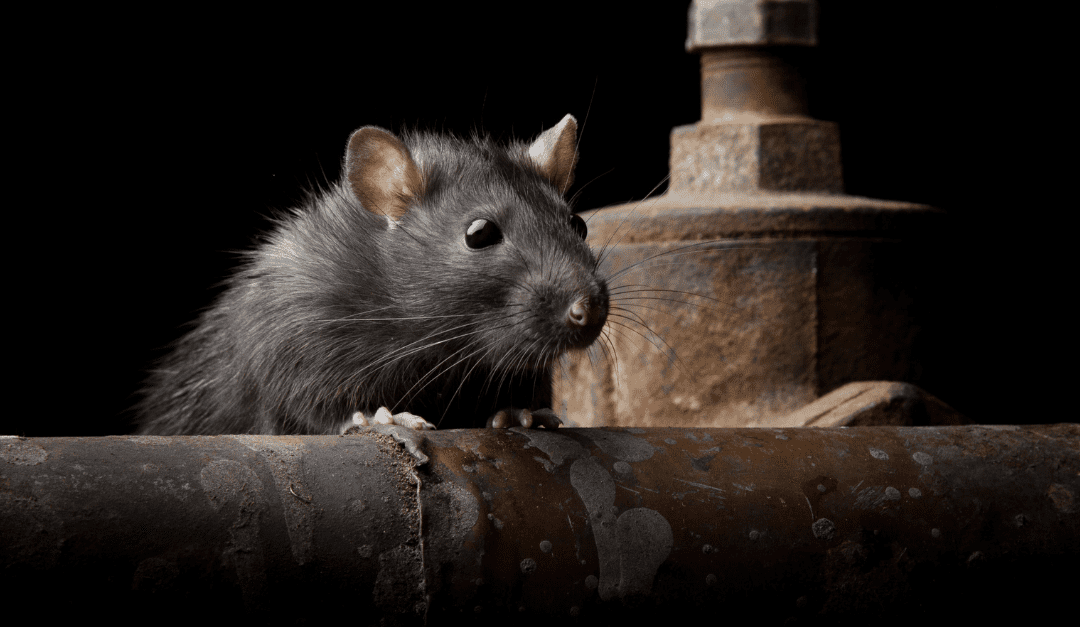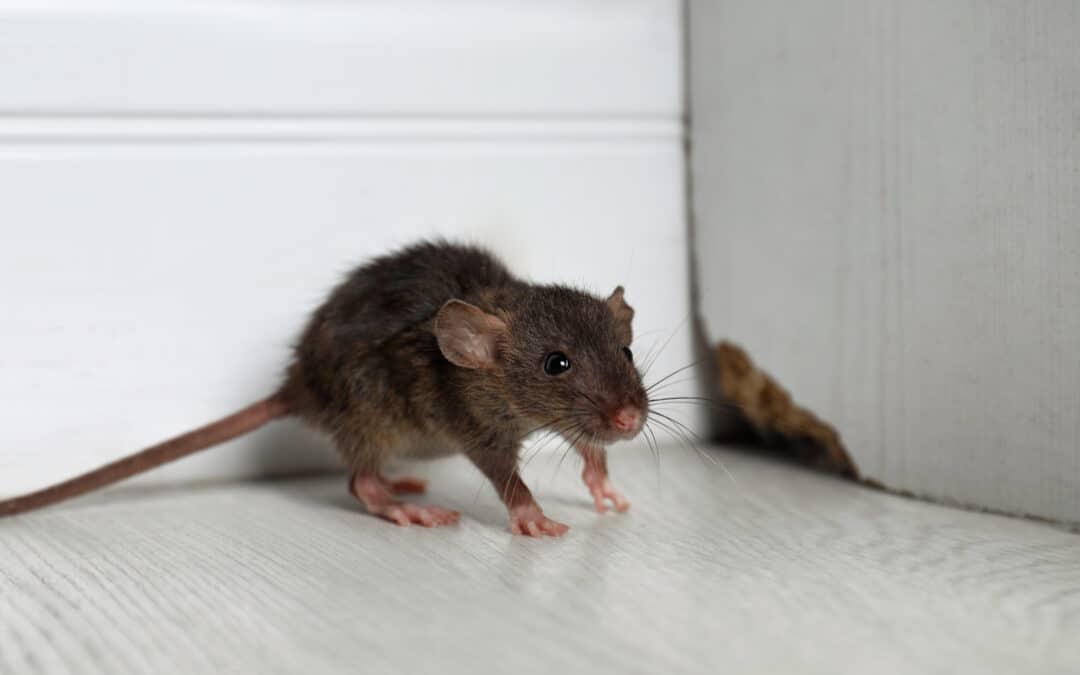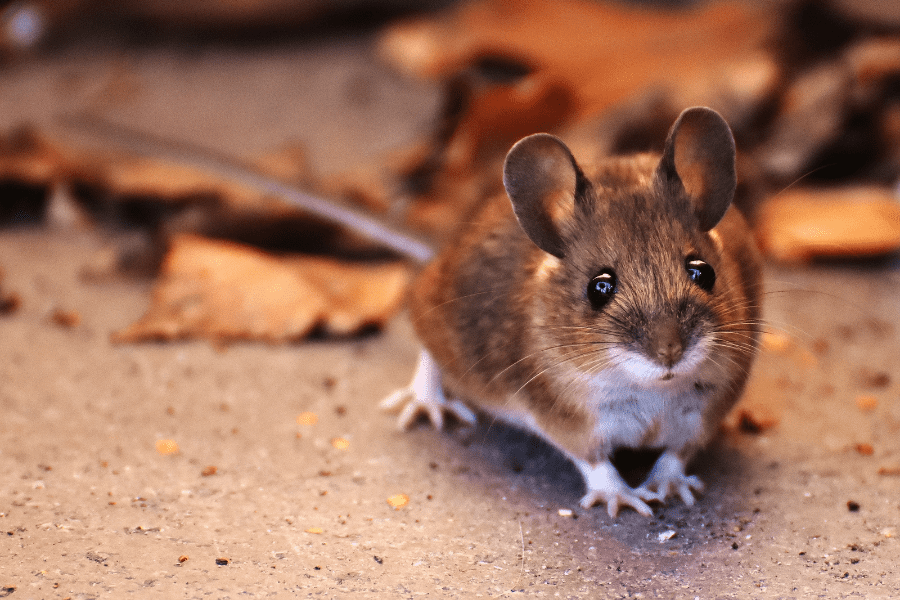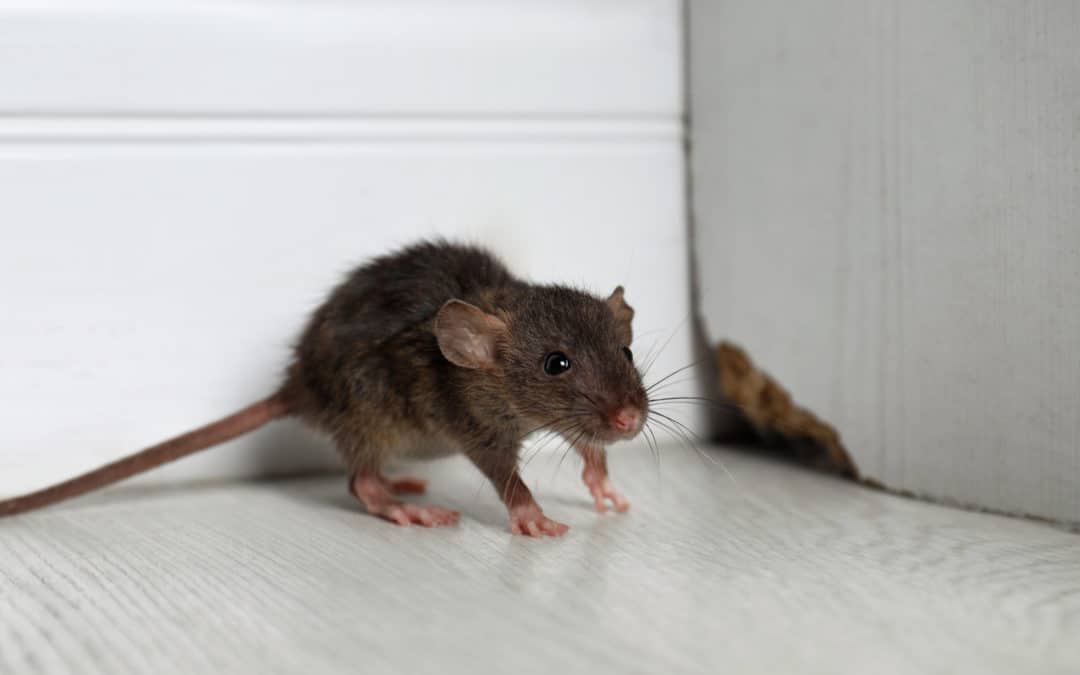READY TO GET STARTED?
REQUEST A FREE ESTIMATE
Fill out the form below or call (888) 466-7849 for a free, no-obligation estimate.

Rodents, such as rats and mice, are common household pests that can cause many problems, from property damage to health issues. In the southern United States, there are several types of rats and mice that are commonly found near homes. Let’s go over the most common types of rats and mice and how to prevent them from invading your home.
Roof rats are also known as black rats and are commonly found in urban and suburban areas. They are about 7-10 inches in length and have pointed snouts, large ears, and long, thin tails. They are excellent climbers and can often be found in attics and trees.
Norway rats are also known as brown rats and are larger than roof rats, measuring 10-12 inches in length. They have blunt snouts, small ears, and short, thick tails. They are burrowers and are often found in basements and crawl spaces.
House mice are small rodents that are about 3-4 inches in length. They have pointed snouts, large ears, and long, thin tails. They are excellent climbers and can often be found in attics and walls.
Deer mice are small rodents that are about 3-4 inches in length. They are brown or gray in color and have large eyes and ears. They are often found in rural areas and can carry hantavirus, a potentially fatal disease.
If you believe you have a rodent infestation, give your local wildlife control company a call to provide a customized plan of action!

We don’t often see temperatures below freezing in Cape Coral, but we do experience colder months. While it’s a nice break from the humid weather, unfortunately, it can bring unwanted pests into our homes. Rodents are looking for a warm place to inhabit and search for a food source. If these pests get inside, they can cause significant damage, such as chewed wires, damaged insulation, and risk of disease. Check out our list of common rodents in your area and how you can prevent them from entering your home.
The house mouse prefers dark, secluded areas in your home, such as the crawl space, basement, or attic. These creatures can adapt very quickly to human environments, often hiding in household clutter and inside the walls of homes. Since they are skilled climbers and are able to jump a foot high, they will often reach isolated areas inside your home.
One of the largest rodent species, Norway rats are nocturnal creatures, searching for food sources in garbage cans at night. You can often spot these creatures burrowing in areas that go undisturbed for a long time, such as crawlspaces and basements. Once inside, these creatures are known to gnaw on furniture, walls, plastic, lead pipes, and wires.
Due to their padded feet, roof rats can easily climb up our homes, infesting our attics, eaves, and roof lines. Living in colonies, they will typically stay together in a familiar area instead of exploring new ones. If an area is providing both food and shelter, these rats will stay close or inhabit the area.
Rodents can adapt to almost any situation, making it more difficult to get rid of them. Fortunately, there are a few easy ways to help deter these creatures away from your home.
To keep rodents out this winter, utilize these rodent prevention tips:

Whether they’re in your basement, attic, crawl space, or even your living space, discovering rodents is never ideal. They carry diseases that can be harmful to you and your family and also cause damage to your home. It’s important to be aware of the signs and types of rodents that can be found in or near your home.
Rodents are never an exciting creature to discover in your home, but how do you know if you have rodents? Here are some signs that rodents could be in your home already:
If you suspect any of these rodents inside your home, consider contacting your local pest control company for a rodent control plan that will help remove, exclude, and prevent them in the future!

Rats are one of the most destructive household pests, chewing through wires, walls, and insulation and contaminating your home with their feces and urine. They also carry some pretty serious diseases, putting both you and your family at risk. These risk factors make identification and rodent control an important part of your household pest control plan.
Rats are mostly nocturnal pests and it is rare for them to come out during the day. Their activity typically begins around dusk. Because rats commonly inhabit areas near humans, it is safer for them to come out after dark when there is less chance of them being caught. They will make an appearance during the daytime if they feel safe enough to do so and especially if food supplies are scarce.
If they aren’t coming around during the day, where are they hiding? Rats prefer to hide in places that are tucked out of the way and that aren’t often disturbed. Outdoors they will hide under piles of debris, under trash piles, in dumpsters and trash cans, in trees, and in sewers. They can also be found under bushes and shrubs, in woodpiles, and in gutters. Inside, rats can be found hiding out in holes, cracks, and crevices; climbing up through drains in bathrooms and kitchens; behind cabinets; behind and under appliances; in air ducts and ventilation systems; in piles of clutter; in storage containers; in hollow walls; and in crawlspaces, attics, garages, and basements.
Seeing a rat during the day can be an indication of a larger rodent infestation. Seeing one rat may not be cause for alarm; seeing more than one or seeing one in conjunction with other signs of rodents can be cause for concern. Some common signs of a rodent infestation include rat droppings, especially in one specific area; chew marks or chewed through wires, food packages, and other household surfaces; nesting material like fabric and paper; and a musty smell.
If you suspect you have a problem with rats or any other rodents, contact your local pest control company who can provide you with a thorough evaluation and an ongoing treatment and prevention plan to keep your home pest free.
Winter Lawn Care Tips for Your Georgia Lawn

Rodents such as mice and rats are one of the most common household pests. While they are definitely nuisance pests, they can also cause property damage to your home, as well as transmit serious diseases to you and your family.
The first step in rodent control is to determine that you have an infestation. Common signs of rodents include droppings near food sources; shredded paper, fabric, and other nesting materials; chewed food packages; holes chewed through walls and floors; and stale smells from hidden areas of your home.
Rodents are attracted to unsealed food containers, pet food and water that’s left out, open bowls of fruit and vegetables, leaky faucets and pipes, open trash cans, and compost containers among other things. They enter your home in search of these things. They get in through holes from the exterior of the home, holes around sink and appliance pipes, cracked foundations, unscreened vents, and holes around windows and doors.
The first step in rodent control for your home is prevention. If you can keep these pests from infesting your home in the first place, you won’t have to get rid of them later. Common rodent control methods you can utilize in your house include:
If you have a problem with rodents or other pests, contact your local pest control company for an evaluation.
DIY Pest-Proofing for Fall Wildlife
Are Granddaddy Long Legs Spiders?